20, March 2020
Paul Biya: Bullshitter-in-Chief 0
When the 87 year dictator President Paul Biya appointed Paul Atanga Nji as Minister of Territorial Administration, it was evidently clear that the onetime respectable African leader has lost everything and his utter ignorance of Cameroonian affairs was on display. And indeed, since then, the shallowness of Biya’s knowledge on the crisis in Southern Cameroons has been exposed further.
Declaring the war against English speaking Cameroonians four years ago and spending millions of US dollars to facilitate the arrest and forced extradition of the Southern Cameroons leader and his senior aides from Abuja to Yaoundé, the whole Francophone decision stands out now as deeply misguided as the crisis has grown.
Even then, the Biya Francophone regime’s obsession with the war in Southern Cameroons was just wrong. As the US Assistant Secretary for African Affairs, Hon. Tibor Peter Nagy Jr. had explained some times last year during a press conference in Paris, France, that Cameroon should not have gone down that road.
Today, the level of barbarism being perpetuated by the Cameroon government army soldiers supported by armed government militias as they pursue their genocidal war and scorch earth policy to completely annihilate the Southern Cameroons (Ambazonia) is frightening.
Human Rights Watch, Amnesty International and the International Crisis Group have all estimated that some 20,500 people have been killed, over 282 towns and villages burnt down, some 120,000 people are seeking refuge in Nigeria, over 1million people are internally displaced or living in bushes and 3,000 persons incarcerated in prisons and detention facilities in both French and British Southern Cameroons.
Local human rights groups have also reported that over 4.5. Million people are at risk of famine. Things are growing from bad to worse as the international community is now focused on the outbreak of the coronavirus.
However, one thing we of the Cameroon Concord News Group know for sure is that the 87 year old President Biya of French Cameroun and the Cameroon government army including the private militia sponsored by the regime in Yaounde will be held accountable for these crimes.
President Biya and the consortium of ruling CPDM crime syndicates have resisted all requests by independent humanitarian organizations to visit Southern Cameroons and establish the facts. The coming of the coronavirus is indeed a god-sent opportunity for Mr Biya as international pressure now seems washed away.
Cameroon government health officials have meticulously followed international trends by announcing some few coronavirus cases and reportedly quarantined Air France passengers clearly for PR reasons as just after the Governor of the Littoral Region left the Douala International airport, it was revealed that none of those passengers were detained in any hotel and none had the virus. The Francophone regime has also announced a lockdown of the country while its army soldiers continue to kill innocent Southern Cameroons civilians.
The coronavirus lockdown and Biya’s optimistic statement that compatriots should observe recommended hygiene rules have looked increasingly absurd. Cameroon has so far reported 7 cases as the virus continue to spread across the globe.
Living permanently in his palace at Mvomeka’a, Biya is wrong about exactly how big the coronavirus crisis could become in Cameroon. What his entire senior health officials picked from his clan have been doing in Yaoundé is simply providing the public with mistaken predictions. The problem is at 87, Biya seems to misunderstand entirely the nature of the various crises he is facing as head of state and the ways in which his administration has had an excellent backward approach in responding to them.
One of the biggest failings of the Biya administration is that it relies on old and inefficient men and women who are simply struggling to maintain a state apparatus designed to take care of the needs of the head of state, his family and closed collaborators. This is explains why Southern Cameroonians have opted to pullout of the failed union and set up their own country-the Federal Republic of Ambazonia.
The outbreak of the coronavirus and all its uncertainties simply provided Biya and his gang another golden opportunity to do what they have always done: lies. Misrepresenting figures and fabricating their own projection of how the number of cases was likely to rise to attract millions of dollars from the World Health Organization. Interestingly, all the coronavirus cases with French passports in Cameroon have been reported as fully recovered.
It seems pretty clear that what the regime in Yaounde has been trying to do with the virus pandemic is to divert attention away from the crimes its soldiers are committing in Southern Cameroons. But Biya’s words did nothing to calm the Ambazonia Restoration Forces. Biya is simply interested in putting on a happy one and indivisible Cameroonian face than grappling with reality.
Paul Biya is indeed-a Bullshitter-in-Chief
By Soter Tarh Agbaw-Ebai

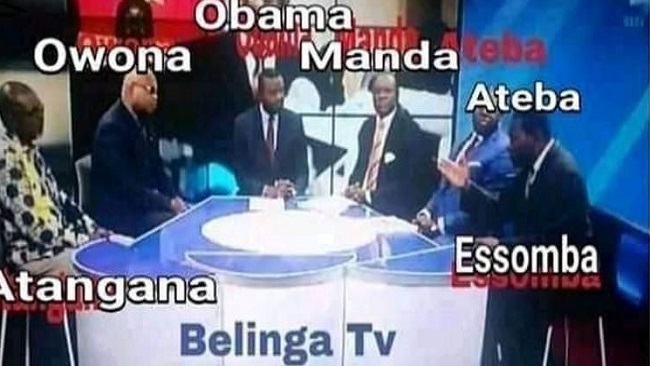



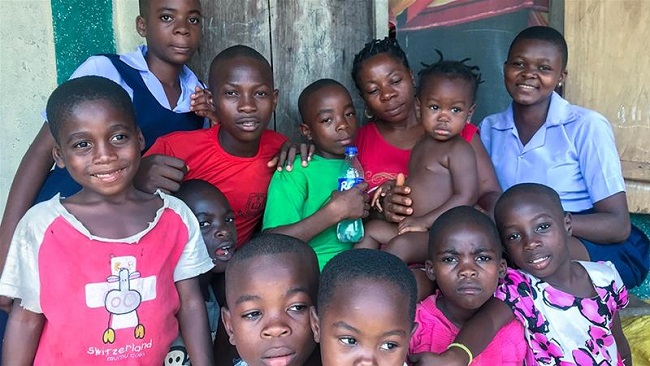
![Glory Tiku says she is struggling to fend for herself and her baby [Linus Unah/Al Jazeera]](https://www.aljazeera.com/mritems/Images/2020/2/27/8c182e776cf241fcb975f50a519d6d14_18.jpg)
![Adagom-3 settlement for Cameroonian refugees was established in late 2019 and it hosts more than 500 refugees [Linus Unah/Al Jazeera]](https://www.aljazeera.com/mritems/Images/2020/2/27/d1427017115a4a48955a3f1ddb0a39f3_18.jpg)

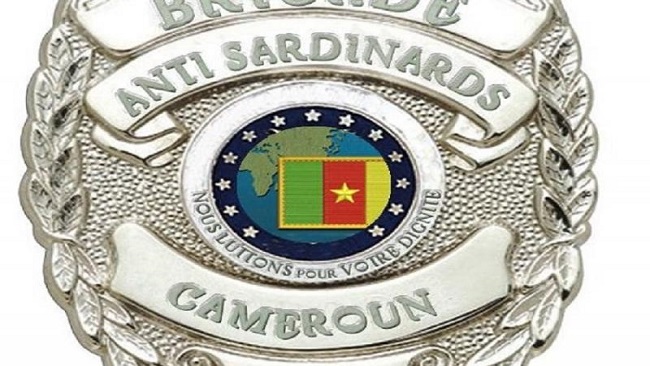
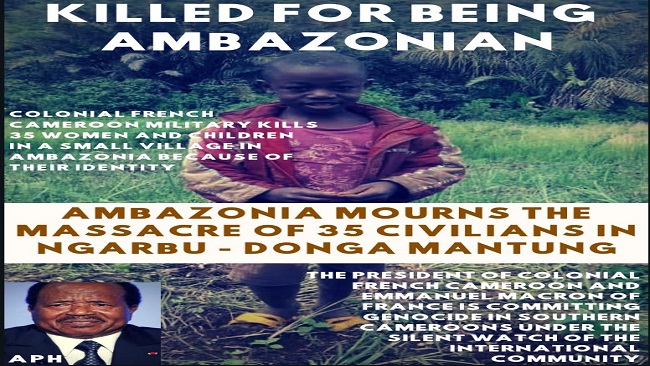
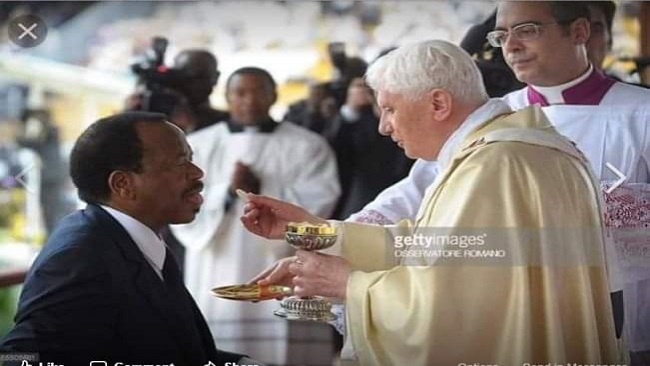
















23, March 2020
The Southern Cameroons Crisis Demands A Real Dialogue 0
The Anglophone Crisis has ravaged an area of Cameroon that is home to more than 3.5 million people – approximately a seventh of the country’s population – and yet it remains one of the world’s forgotten conflicts. General strikes and protests beginning in 2016 gave way to a formal declaration of independence the following year, pitting English-speaking separatists against President Paul Biya’s Francophone government in Yaoundé. The situation has deteriorated since, with last month’s parliamentary elections leading to further unrest.
At the start of the year, Mr. Biya promised that the deployment of additional troops to the area would ensure that the vote proceeded as planned. Polls across the Northwest and Southwest regions were indefinitely postponed anyway, even as the military presence remained.
In the English-speaking Northwest and Southwest regions of Cameroon, teenagers are kidnapped and mutilated by separatist militants who want to discourage them from attending schools. Villages like Ngarbuh are the site of brutal massacres, shows of force orchestrated by government soldiers seeking to dissuade civilians from harbouring dissidents. Candidates for political office risk kidnapping and assaults and more than 80% of schools, and 40% of health centres are closed. Over 3,000 people are dead and more than 700,000 displaced, including 50,000 refugees who have fled across the border to Nigeria. The Cameroonian army’s inability to curb separatist influence and its complicity in atrocities like the attack on Ngarbuh, suggests that higher numbers of boots on the ground will do little to stem the bloodshed.
Cameroon’s linguistic divide and the grievances that it has fostered is rooted in the country’s very foundation. A 1961 referendum led to what is currently Northwest and Southwest Cameroon joining a newly-independent French Cameroon, instead of English-speaking Nigeria to the north despite a history of English rule. The absence of leadership from the British and French governments, whose forerunners laid the groundwork for this powder keg, is a particularly striking failure.
UK Prime Minister Boris Johnson has been silent on the matter since a 2018 tweet, back when he was Foreign Minister, which noted an “urgent need to pursue dialogue, decentralisation and respect #humanrights in Anglophone Regions as [Paul Biya] has previously committed.”
French President Emmanuel Macron vowed to exert “maximum pressure” on Mr. Biya to address the Ngarbuh massacre. He quickly adopted a more conciliatory tone. A phone call at the beginning of March succeeded in defusing the resulting tensions between France and Cameroon, but did little to advance prospects of a peaceful resolution to the crisis. Biya’s commitment to an investigation of the massacre following the call was a hollow victory for Macron. Cameroon’s government had already announced it was opening an inquiry and the problems the country faces extend far beyond one act of violence.
Efforts within Cameroon to find a resolution have been more concerted but just as ineffective. The Major National Dialogue, a summit called by Mr. Biya in September and October last year, made for good political theatre. It excluded several major separatist leaders, some of whom were still in government detention. These meetings produced vague commitments for greater Anglophone autonomy. A period of intensified violence immediately followed them in western Cameroon.
Though devolution is a step in the right direction, Mr. Biya’s subsequent efforts to placate the separatists were doomed to fail, due to their limited scope and the lack of consultation. Legislation passed by parliament in December promised “special status” for the Northwest and Southwest regions, granting them their own legislative assemblies and executive government. The bill was pursued by the Biya government unilaterally with little concern for the input of the people it was meant to appease. Moreover, the provisions granted under “special status” are insufficient. Critics describe it as “too little, too late,” noting that many of these autonomous institutions would still depend on Yaoundé to approve their decisions. Amid a crisis where lack of trust in the central government fuels Anglophone resistance, only genuine consultation and good-faith negotiations can remedy the situation.
For that kind of dialogue to happen, French and British absenteeism must end. Mr. Macron, whose country is Cameroon’s closest partner, should follow the lead of President Donald Trump, whose administration last year reduced military assistance and trade concessions to Cameroon in response to its human rights violations. Military and economic influence can be used to corral Mr. Biya into commencing negotiations and the involvement of foreign leaders in the peace process will help ease the doubts of separatist leaders. Several Anglophone groups boycotted the Major National Dialogue due to scepticism about the Cameroonian president’s intentions and lack of international oversight. Meaningful involvement from Messrs Trump, Macron and Johnson would go some way in kick-starting the peace process.
Mr. Biya will need to engage with the broad array of separatist groups claiming to represent English-speaking Cameroonians. There is no point for a peace agreement that excludes some groups, as they will simply continue fighting. Releasing political prisoners and mollifying the concerns of separatist leaders who boycotted last year’s summit is imperative. The separatists, for their part, cannot continue to violently enforce bans on education and political activities if they want to reduce military presence in the west. The government will not entertain reducing its troop deployment – a necessary precursor to fruitful negotiations – if militants continue to deprive the people in the region of education and healthcare access.
If Mr. Biya and the relevant opposition leaders are able to begin discussions, a successful outcome will depend on significant concessions from both sides. The extreme position of many separatists, an independent Anglophone state called Ambazonia, is untenable and would not be accepted by Mr. Biya or the international community. On the other hand, the response to December’s devolution bill proves that fundamental change is necessary to appease Cameroon’s English-speakers. Returning the country to a federal system (it was shortsightedly transformed into a unitary state in 1972) would preserve ultimate authority in Yaoundé, while still providing those in the Northwest and Southwest with genuine autonomy under a powerful regional government.
Separatists who have styled themselves as leaders of a newly independent state would be disappointed by the devolution of authority. By the same token, it remains questionable whether Mr. Biya would be willing to relinquish control after forty years of accumulating centralised power. The three years of violence and disorder have been bad for Cameroon and its Anglophone regions. Each escalation, troop deployment and human rights violation has merely exacerbated the conflict. This crisis will only end when the relevant parties are willing to make concessions through real dialogue instead of political performance.
Culled from The Organization For World Peace